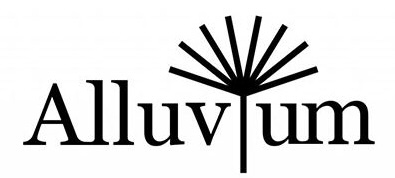Xavier Marcó del Pont
Shortly after its publication in 2010, Jonathan Franzen’s fourth novel Freedom garnered critical praise of the highest order, with many reviews invoking that old, much coveted title: the ‘Great American Novel’ [1]. Coined by John William De Forest in 1868, this phrase has since been questioned at a number of levels. In recent years, Catherine Morley has protested against the first word of the term, stating that ‘the operative adjective [is] primarily a description of size’, going on to call the entire designation a ‘superficially impressive though somewhat empty title’ (Morley 1). Elsewhere, Gabriel Brownstein has perceptively read the differences between the ‘Great American Novel’ and merely a great American novel, further questioning the term. Jon Stratton has taken issue with the third word of the phrase, asserting that ‘[in the construction Great American Novel, t]he term novel […] can be extended to include film or, indeed, any medium that allows for extensive fictional development’ (Stratton 62). In this brief article, it is my intention to question the term ‘American’.
As a doctoral candidate studying the work of Thomas Pynchon, another writer of Great American Novels, I am frequently called upon to question what the defining features of American Literature are, with countless conferences, essay prizes and collections dedicated to the notion of American identity. However, amongst all this self-reflexivity it seems to me that the field of American Studies continues to disregard the ambiguity contained within the very word ‘America.’ America, after all, is first and foremost a continent, not a nation.
Could North Americans be renamed as United Statians or U-S-ians? [Image by The Q under a CC-BY-NC-SA license]
The significance of this nominal abduction will perhaps be lost to those who are not forced to confront it personally, yet to all Americans (other than US citizens) it will seem self-evident. However, let me illustrate it through analogy. Imagine the unsettling effect of and outrage that would ensue if, say, France or Germany were to begin referring to their population (and their population alone) as European. If referring to Africa as a country is widely interpreted as a telling sign of ignorance at best, why would treating America as a country be interpreted in any other way? Africa is a continent, not a country. And so is America.
Historically, many alternative names for US nationals have been proposed, so as to abolish this demonymic ambiguity. In his essay ‘Names for Americans’, Henry Louis Mencken lists and explains the genesis of many of them: Columbian, Columbard, Fredonian, Unisian, United Statesian, United Statian, Usian, Statesian, Washingtonian, Usonian, Uessian, U-S-ian, Uesican, Ustation, and the possibly humourous Colonican. Mencken also reports that Sir Edward Clarke, Solicitor-General of England from 1886 to 1892, put forth Usona – an acronym of United States Of North America – as an alternative name for the US, Usonan being its citizens’ demonym. Likewise, Washington Irving proposed – Mencken cannot ascertain whether seriously or otherwise – that the name United States of America be changed to either United States of Appalachia or United States of Alleghania, therefore introducing either the demonym Appalacian or Alleghanian, stating that even the ‘old national cypher of U.S.A. might remain unaltered’ (Mencken 243). Elsewhere, taking its form – one would imagine – from the Spanish language word estadounidense, Michael Kearney employs the term unitedstatesian (Kearney passim). None of these terms have, however, gained any popular currency.
It is not the case that this issue has not been raised within the field of literary studies. Yet most often it is awkwardly addressed in passing in introductions, or quickly mentioned in the form of typographical notes. In the introduction to A Companion to American Literature and Culture (2010), Paul Lauter concedes that ‘the phrase “American literature” is […] itself highly contested, and for good reason. After all,’ he continues, ‘the United States forms only one part of the Americas, and appropriating the term “American” to describe the literatures of this nation constitutes something of an imperial move.’ Having recognized this, he goes on to justify the volume’s use of the phrase on the grounds that it still is the ‘most commonplace in course catalogues, syllabi, and anthologies, [despite] its inescapable difficulties’ (Lauter 3).
A continent, not a nation: American Studies needs to address the "geo-chauvinism" of allowing the United States to be synonymous with America [Image by Kathie M Ceballos under a CC-BY-NC-ND license]
Elsewhere, Richard R. Valencia also highlights that the use of the term American to denote US citizens is ‘a practice deeply embedded in historical and contemporary scholarship’ (Valencia xv). He goes on to state that his terminological inaccuracy results from ‘convention, not [from] a geo-chauvinistic claim that the USA has exclusive ownership of the word’ (Valencia xvi). The fact that Valencia relegates this complex issue to an apologetic footnote is in itself telling. In my opinion, the ‘geo-chauvinist claim’ is implied regardless. To admit that this ‘convention’ is ‘a practice deeply embedded’ is nothing else than to recognize wrongdoing and follow it with a rather blatant caveat. Whether a sign of a nation’s definitional hesitation, or telling evidence of an urge to synecdochically take over the nominal identity of an entire continent, what may seem at first to be but a mere semantic glitch is revealed in fact to be a symptom. Cultural complacency and unquestioning adherence to tradition are neither valid excuses nor productive tactics. The last 50 years have seen enormous efforts made to modify cultural attitudes, efforts that go hand in hand with an alteration at the level of language, with certain words and terminology evolving, being appropriated and reappropriated.
Thomas Pynchon, whose work continually questions boundaries, nation-building, and the diversity of identities that constitute the American continent, humorously reflects on geo-political chauvinism in his 2009 novel Against the Day:
“[…] you can see that it all makes one great mass, doesn’t it? Eurasia, Africa, America. With Inner Asia at its heart. Control Inner Asia, therefore, and you control the planet.”
“How about that other, well, actually, hemisphere?”
“Oh, this?” He flipped the globe over and gave it a contemptuous tap. “South America? Hardly more than an appendage of North America, is it. Or of the Bank of England, if you like.” (Pynchon 271-272)
As in Mason & Dixon (1997), here Pynchon stresses the fact that boundaries not only signify separation, but also engender difference. In the aforementioned passage, ‘South America’ is characterized as exo-continental, a protuberance or an outgrowth, both out of sight and unsightly. Through the conflation of country and continent, most American nations are rendered peripheral, exiled within their own continent.
Reducing the term American to signify but the inhabitants of one single nation immediately annuls any possible discussion of continental commonality. Whereas volumes and syllabi that assess, for example, European or African literature and culture are commonplace, the term American Literature has gained an inaccurate specificity. Due to the co-option of the term, it has become essentially impossible for American continental literature or culture to be addressed or even contemplated. It is, in the English language, a literally unspeakable concept, suggesting – or rather constructing – an insurmountable boundary between American cultures.
What is American Literature? Rethinking Great American Novels [Image by Connecticut State Library under a CC-BY-NC-ND license]
In his 1990 essay/manifesto, ‘Border Culture: The Multicultural Paradigm’, Guillermo Gómez-Peña states:
‘Let’s get it straight: America is a continent not a country. Latin America encompasses more than half of America. Quechuas, Mixtecos, and Iroquois are American (not United States citizens). Chicano, Nuyorrican, Cajun, Afro-Caribbean and Québécois cultures are American as well. Mexicans and Canadians are also North Americans. Newly arrived Vietnamese and Laotians will soon become Americans. United States Anglo-European culture is but a mere component of a much larger cultural complex in constant metamorphosis.’ (Gómez-Peña 95)
As Gómez-Peña highlights, the use of such an utterly imprecise and reductionist national demonym instantly others the rest of the American continent. In these times of ever increasing multiculturalism and global interconnectedness, it is paramount that we attend to the manner in which we categorize and conceptualize national and continental cultures.
Although I am not under the deluded impression that these words will have any effect on the way US nationals describe themselves, their history, culture, or literature, as a scholar I cannot help but question this conspicuous terminological ambiguity. I do believe that Herman Melville’s Moby Dick (1851), John Steinbeck’s The Grapes of Wrath (1939), Ralph Ellison’s Invisible Man (1952), and other texts are excellent candidates indeed for the title of Great American Novel. However, I am certain that Julio Cortázar’s Rayuela (1963), Gabriel García Marquez’s Cien Años de Soledad (1967), José Mauro de Vasconcelos’s O Meu Pé de Laranja Lima (1968), Margaret Atwood’s Cat’s Eye (1988), Roberto Bolaño’s 2666 (2004), and many others are also rightful contenders for this title, being – as they undeniably are – Great American Novels.
CITATION: Xavier Marcó del Pont, “America and America,” Alluvium, Vol. 1, No. 5 (2012): n. pag. Web. 1 October 2012, http://dx.doi.org/10.7766/alluvium.v1.5.01.
[author] [author_image timthumb=’on’]http://www.alluvium-journal.org/wp-content/uploads/2012/09/Xavier-Marco-Del-Pont.jpg[/author_image] [author_info]Xavier Marcó Del Pont is currently completing a PhD thesis entitled Titles and Topoi: Narrative Structure, Structural Metaphors, and Organizational Devices in the Works of Thomas Pynchon at Royal Holloway, University of London. He co-convenes the Literary and Critical Theory Seminar at the Institute of English Studies (London) and is a member of the Editorial Board for Royal Holloway’s e-journal Exegesis. [/author_info] [/author]
Works Cited:
Brownstein, Gabriel, ‘How to turn a great American novel into a Great one’, Guardian Unlimited (17 February 2011): http://www.guardian.co.uk/books/booksblog/2011/feb/17/great-american-novel [Accessed 15 September 2012]. Originally published in extended form in The Millions: http://www.themillions.com/2011/02/the-big-show-franzen-goodman-and-the-great-american-novel.html
De Forest, John William, ‘The Great American Novel’, The Nation: A Weekly Journal, Vol. VI, January 9th, 1868, pp. 27-29.
Kearney, Michael, ‘Borders and Boundaries of State and Self at the End of Empire’, Journal of Historical Sociology, Vol. 4, No. 1, March 1991, pp. 53-74, http://dx.doi.org/10.1111/j.1467-6443.1991.tb00116.x.
Gómez-Peña, Guillermo, ‘Border Culture: The Multicultural Paradigm’, in The Decade Show: Frameworks of Identity in the 1980s (Los Angeles and New York: Museum of Contemporary Hispanic Art, New Museum of Contemporary Art, and Studio Museum of Harlem, 1990), pp. 93-103.
Lauter, Paul, ‘Introduction’, in A Companion to American Literature and Culture (Chichester: Wiley-Blackwell, 2010), pp. 1-5, http://dx.doi.org/10.1002/9781444320626.ch.
Mencken, H. L., ‘Names for Americans’, American Speech, Vol. XXII, No. 4, Dec. 1947, pp. 241-256, http://dx.doi.org/10.2307/486658.
Morley, Catherine, The Quest for Epic in Contemporary American Literature (London: Routledge, 2008).
Pynchon, Thomas, Against the Day (London: Vintage, 2007).
Stratton, Jon, ‘The Beast of the Apocalypse: The Postcolonial Experience in the United States’, in Postcolonial America, C. Richard King (Ed.) (Baltimore: University of Illinois Press, 2000).
Valencia, Richard R., ‘Introduction’, The Evolution of Deficit Thinking: Educational Thought and Practice (Stanford Series on Education and Public Policy) (London: Routledge Falmer, 1997), pp. ix-xvii.
Notes:
[1] For illustrative examples, see: Lezard, Nicholas, ‘Freedom by Jonathan Franzen’ [Review], Guardian Online, September 1st, 2011, accessible at: http://www.guardian.co.uk/books/2011/sep/01/freedom-jonathan-franzen-review; Alsup, Benjamin, ‘Jonathan Franzen Will Go Down Swinging’, Esquire, August 11th, 2010, accessible at: http://www.esquire.com/fiction/book-review/jonathan-franzen-freedom-review-0910; Grossman, Lev, ‘Jonathan Franzen: Great American Novelist,’ Time, Aug. 12, 2010, accessible at: http://www.time.com/time/magazine/article/0,9171,2010185,00.html; Schmich, Mary, ‘Even in Twitter age, The Great American Novel still exists’, Chicago Tribune, September 18th, 2010, accessible at: http://articles.chicagotribune.com/2010-09-18/news/ct-met-schmich-0919-20100918_1_great-american-novel-jonathan-franzen-freedom.
Please feel free to comment.




